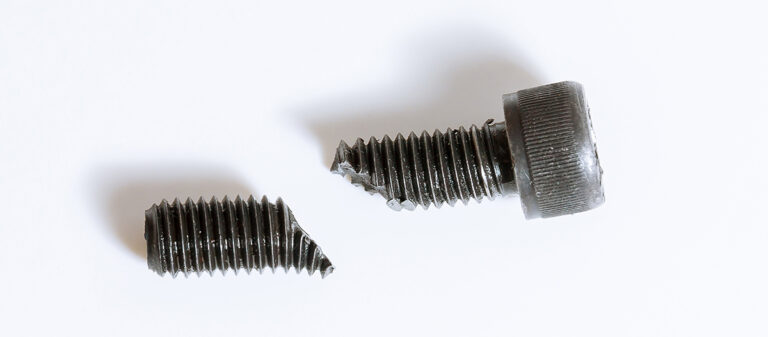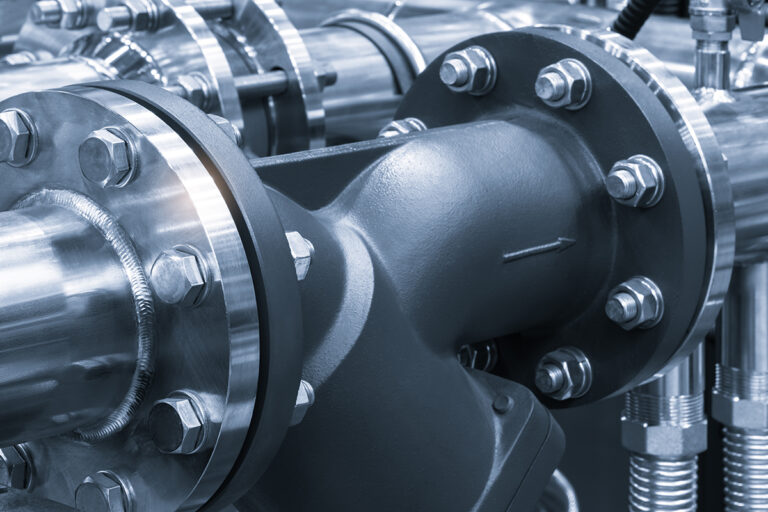Fasteners play a crucial role in holding various structures and system together, from the wings of an aircraft to the frame of a skyscraper. Careful consideration of fastener materials, including strength, durability, corrosion resistance, and environmental conditions, are essential for securely assembling components. In this blog, we’ll take a closer look at the world of fastener materials and their applications in different industries.
Steel: The Workhorse of Fasteners
Steel is undoubtedly the most common material in the realm of fasteners. Revered for its exceptional strength, durability, and affordability. Fasteners crafted from various steel alloys, such as carbon steel, alloy steel, and stainless steel, form the backbone of countless structures across industries.
Carbon steel, known for its high tensile strength, is a workhorse in applications where robustness is paramount. Alloy steel, on the other hand, offers enhanced properties due to its alloying elements, making it suitable for more demanding environments. Stainless steel, prized for its corrosion resistance and aesthetic appeal, is often the material of choice in industries requiring both durability and an attractive finish.
From construction to automotive and aerospace, steel fasteners play a pivotal role in ensuring the structural integrity and reliability of diverse systems. Versatile and reliable, they are a staple in the fastener industry, enhancing the strength and stability of global structures.
Aluminium: Lightweight and Corrosion-Resistant
Aluminium fastener materials have gained prominence in various industries due to their unique combination of lightweight properties and corrosion resistance. The use of aluminium alloys in fasteners is particularly prevalent in applications where weight reduction is critical, such as aerospace and automotive engineering. The advantageous strength-to-weight ratio of aluminium makes it an excellent choice for components that demand both structural integrity and reduced mass. Additionally, aluminium fasteners exhibit corrosion resistance, ensuring longevity and reliability in diverse environments. Their versatility extends to applications where the avoidance of galvanic corrosion, a common concern with dissimilar metal combinations, is essential. While not as robust as steel or titanium, aluminium fasteners find their niche in situations where the benefits of weight savings and corrosion resistance outweigh the need for maximum strength.
Titanium: The Lightweight Champion
Titanium fastener materials stand out as a marvel in the world of fastening technology, prized for their exceptional strength-to-weight ratio and corrosion resistance. Widely utilised in aerospace and high-performance applications, titanium fasteners offer a unique blend of strength comparable to steel but with significantly lower weight. This makes them instrumental in reducing overall mass without compromising structural integrity, a critical factor in the aerospace industry where every ounce matters. Furthermore, titanium’s resistance to corrosion, even in aggressive environments, ensures the longevity and reliability of the fasteners. Despite a higher cost, titanium fasteners’ unique blend of strength, low density, and corrosion resistance renders them indispensable. In situations where optimal performance and durability are paramount, these qualities set titanium fasteners apart.
Brass: Corrosion Resistance with a Touch of Elegance
Brass fastener materials bring a touch of elegance and corrosion resistance to the world of fastening solutions. Composed primarily of copper and zinc, brass fasteners find their niche in applications where aesthetic appeal is as crucial as functionality. While not as robust as steel or titanium, brass offers satisfactory strength for less demanding applications . Its corrosion resistance makes brass an ideal choice for environments where exposure to moisture is a concern. Commonly used in decorative and architectural settings, brass fasteners add a distinctive and polished appearance. The versatility of brass extends beyond its visual appeal, making it a suitable choice for a variety of fastening needs where a balance of strength, corrosion resistance, and aesthetic charm is sought.
Plastics: Lightweight and Non-Corrosive
Plastic fastener materials, a departure from traditional metal options, have carved a unique niche in fastening technology. Made Made of nylon or polypropylene, these fasteners offer a range of benefits, including corrosion resistance, electrical insulation, and weight reduction. Plastic fasteners are particularly advantageous in industries where metal alternatives might be susceptible to corrosion or may add unwanted weight. Their versatility extends to applications in electronics, automotive, and consumer goods, where non-conductivity and lightweight properties are crucial. While plastic may not match the sheer strength of metal, its use in scenarios where these other properties are prioritised makes it an increasingly popular choice. As technology advances, the development of high-performance polymers continues to expand the capabilities of plastic fasteners. This demonstrates their adaptability in diverse industrial settings.
Conclusion
Choosing the right fastener material is a critical decision. It impacts the overall performance and longevity of a structure or system. Each material has its unique set of properties. The selection process involves a careful evaluation of factors like strength, weight, corrosion resistance, and environmental conditions. As technology advances, new materials and alloys are continually being developed, pushing the boundaries of what fasteners can achieve. Understanding the specific requirements of the application and selecting the most suitable material are key factors. They ensure the integrity and reliability of the assembled components.
Our team of experts are ready to assist you in choosing the most suitable security screws for your specific requirements.
Contact us today on 1800 776 565.
Secure Your Assets with Sentinel Group Security Screws.
Choose Sentinel Group Security & Customised Fastening Solutions.




